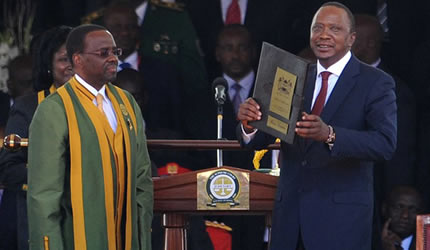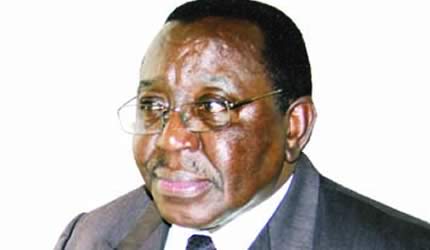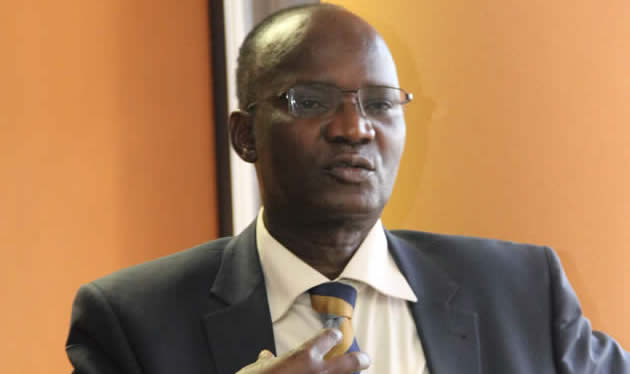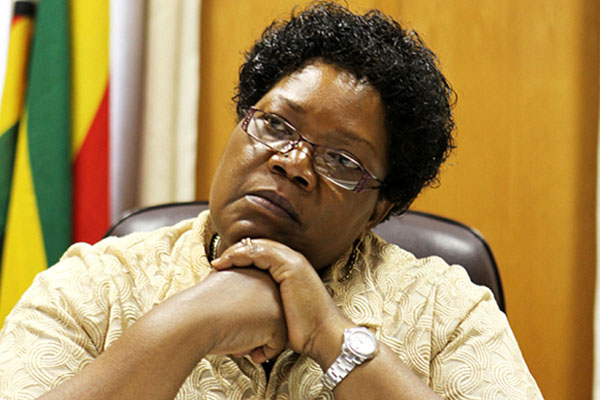Party Primaries — To Serve or to Save?

Archetypically, Kenya was supposed or fated to implode. It had no politics; it had tribes, its detractors claimed.
Warring ones too. It had no parties; it had personalities. The Big Man syndrome by which our leaders are stereotypically characterised in western orthodoxy.
So Kenya was not even a country; a simmering cauldron where gore spurted naturally, periodically clowned as elections, gratuitous bloodletting, itself seen as the boon of politics of corruption and patronage.
When we self-immolate
I must admit to one fact, two perhaps. As Kenyans, as Africans, we are also guilty of this mischaracterisation, in fact participants in this game of self-flagellation. I am not so sure it is anger of the injured, for that naturally triggers revolutions that remake societies.
We pillory Kenya, pillory ourselves while snugly resting in western cradles, an invisible white hand rocking us to calm delight.
We are easily instigated against ourselves, something Zimbabweans might just beat Kenya on.
And the West has been infinitely good in providing cradles to our disgruntled selves: by way of opposition structures; by way of advocacy units; by way of militant NGOs whose goodness flows towards our private bank accounts, never towards the so-called “people” in the name of whose injury we yell, pillory, beg, mug and multiply.
As Africans we have been participants in this game of self-immolation. Yes, as corrupt politicians and leaders who make us deserve such stereotypes, who make the stereotypes such fitting, ever evolving tropes or shorthands, for describing us.
Africa’s fillip
So this was the Kenya of headlines, itself the cosmos of Wambui, of Othaya. Came elections, Kenya confounded these doomsayers.
What a delight to Africa! What a fillip to the African personality!
What a good augury for Zimbabwe and her buffeting politics whose sheer pungency madly attracts those green bombers collectively called the West.
They are always buzzing above us, expectantly asking when we are likely to become cadavers, when decaying matter. We do much better than an excretal monument perched in the neighbourhood of a yawning blair toilet.
After the humiliation of Mali, itself a still continuing story, Kenya gave us a reviving page from which to re-read Africa’s destiny. And the inauguration of Uhuru Kenyatta, now President Kenyatta, early this week, capped the grandeur. Africa’s head today bobs up and up, in craved-for pride.
Bad loser chastised And the inauguration did more. It chastised Raila Odinga, the man who contested Kenyatta so forcefully, thereby, as we all thought, giving Kenyans a real choice on the menu. Such a role, I must emphasize, is some hell of public service.
And the inauguration did more. It chastised Raila Odinga, the man who contested Kenyatta so forcefully, thereby, as we all thought, giving Kenyans a real choice on the menu. Such a role, I must emphasize, is some hell of public service.
It defines democracy. It deepens it. That banal statement from Jonathan Swift, the author of Gulliver’s Travels — nothing is greater or smaller except by comparison. Do we remember that?
Do we know its practical value in everyday national politics? I said the inauguration chastised Odinga. That it did.
The man would not attend the inauguration of the President of Kenya, his President from that Tuesday onwards into the constitutional five years. He instead chose to fly out of Kenya, into South Africa, ostensibly to rest, ostensibly to “see” the ailing Mandela!
Whatever his real reasons — and he does not have to lie to himself — Africa saw it as bitterness, saw it as a case of a bad loser, itself the curse of opposition politics on our continent.
The choice had gone to the people, who took a pick.
Raila was not happy.
He approached the courts.
The dispute went before the courts, which passed a verdict that consigned Raila to a role in the opposition. Still he was not happy, which means that in terms of human ingenuity, Kenya had exhausted all its recourse, of course viewed within the circumscription provided by rules of sovereignty.
Short of God — and who knows the fastest route to His appellate division? — Kenya had nowhere else to go. Give it to Raila, he conceded, albeit bitterly, and helpfully appealed to his disappointed supporters to desist from violence.
He helped Kenya escape the stereotype that seemed so unremitting. We give it to him — this far, that is. But his conduct thereafter, including flying away from the winner’s inauguration, came across as mean, as unstatesman-like.
Much worse, his invoking the name of the ailing Mandela — in vain — sounded like some cynical and disingenuous way of inventing a counter-attraction where unison was the answer.
Africa decried that, condemning Raila to an example of how-not-to-do-it. We hope all politicians, including those we have here, take note, take good note.
Mary Wambui of many rumours
Mary Wambui. Othaya. I know I am being obscure, but also abusing the reader by deferring vital information that makes both nouns sensible. Mary Wambui was a Kenyan businesswoman whose name proved just as fluid as her contested personality. By claims of scandal, she was linked to Kenya’s State House.
I have no facts, and so will not elaborate, except where absolutely necessary. In any case that is not the import of this piece, please. Those craving for droppings of scandal-talk can take the trouble to google. I said Mary was a businesswoman.
Because today Mary is much larger, much bigger, than a woman in business. She is the brand new Member of Parliament for Othaya.
And Othaya seems happy, jubilant, much so against the opprobrium, the savage mischaracterisation which preceded her election.
She ran on TNA, the National Alliance born out of the winning merger of Uhuru and William Ruto.
She went through her party primaries, to much grief.
By the way, I have left out a key detail. Othaya was a President Kibaki — now retired — constituency. From many, many years back, including days when the young Kibaki was a go-getter Minister, first under Uhuru’s father, second under President Moi, again retired.
And of course after the Moi government following a nasty fallout in the political bedroom.
He served it for 38 years, a staggering period in political life. The puzzling thing was that the Kenyan grapevine linked Mary to President Kibaki, linked the two amorously.
State House strenuously denied this rumour, but never took the trouble to remove its incriminating symbols around the lady in question, including her enjoying State security protection that befits a big man’s woman.
When Othaya spoke
Much worse, she got linked to the underworld of drugs, largely extrapolatively by dint of which man her daughter — Winnie Wangui — married.
To worsen matters, she was also accused of some role in the 2007/8 deadly elections.
More personally, Mary was reminded that her “school” was small, to use local parlance. She had not seen the inside of a secondary school, and could hardly stitch together a sentence in English.
To Kenyans, possibly to Mai Kibaki, it looked like the President had passed on his traditional constituency to his “small house”, to use local terminology.
To Kenyans, it looked like an illustrious constituency was now being soiled by a woman of dubious credentials and personality.
Except the President proceeded to throw his weight behind a rival candidate — a man at that — one called Gichuki Mugambi.
Young William Kibaki, the President’s son proceeded to back Gichuki’s campaign, thereby making good State House’s preferred candidate.
Came party primaries, Mary won resoundingly. Othaya had spoken, or so Mary thought. Kenyans have this unique procedure where a winning candidate at the level of party primaries is certificated.
That certificate is what takes the winner to the Independent Elections and Boundaries Commission, IEBC, for registration as a candidate in the subsequent poll.
TNA did not favour Mary with that vital certificate. Instead, it gave it to Gichuki, State House’s favoured son. Hell broke loose.
Wambui, accompanied by angry women of Othaya stormed IEBC offices to block the nomination of Gichuki. For that action, she faced disciplinary action by the IEBC.
But the gamble paid off, for that time. Her party certificated her and her nomination went through, leaving the sulking Gichuki to abscond to a rival party, Saba Saba Asili.
More vexations . . .
Worse was to come, poor Mary. Four Kenyans, all men, approached the courts seeking to bar Mary from being passed as the candidate for Othaya. Michael Nderitu, Silvester Muriithi, Daniel Karinga and Kiambati Kihumba sought to bar Mary on grounds that she did not fit the integrity test established in the constitution.
They cited allegations against Wambui related to drugs peddling.
They salted their application by adding “she never attended high school” and thus did not have “O” Levels as required by the law.
Thankfully the Kenyan High Court threw the case out. In the court’s view, integrity issues would be dealt with by the IEBC.
I shall not make reference to the vilification campaign which this woman of Othaya put up with. There is no space for that.
Humiliating First Family
Elections came, finding the disfavoured Mary pitted against two men: his rival Gichuki Mugambi and another contestant, one Peter Kingara. She persevered, a whole community behind her. Tuesday, 5th March saw Mary trouncing both men, to the deafening jubilation of Othaya. And here were the results: Mary Wambui, 16 285.
Peter Kingara, 14 218. Gichuki Mugambi 10 972. Dear reader, I have taken the trouble, carted the trouble of making you wrestle with Kenyan names, taken that trouble to you.
I hope it will not turn out to have been in vain. I am trying to use the Kenyan experience to broach the subject of selection of candidates for electoral contests.
Selection by parties through primaries, and selection for the national polls, again by parties.
Mary stood in spite of, not because of, State House. When she triumphed, it was seen as a victory against President Kibaki who had stood for Othaya for 38 long years!
It was viewed as defeat for the First Family which had sought to defeat the candidature of Mary, tofoist the candidature of Mugambi, all against popular will.
I don’t know what the First Family’s gripe might have been, but it is difficult not to imagine that their reasons for blocking Mary had little to do with the people and interests of Othaya, or who among the contestants was likely to advance these interests.
Party conduct, national
misconduct
Mary triumphed initially in spite of, not because of her Party which denied her a certificate in the face of her clear win. Initially because her Party later relented, but not before it had embarrassed itself by thinking the opinion of the First Family mattered over that of Othaya.
And the key points to note are that the people of Othaya stood by their candidate, defended her even when she was under siege. What is not known is that both Uhuru and William Ruto prevailed over State House to get Mary to stand in primaries, to be certificated after primaries, and to be nominated after frivolous court actions.
Much more, they supported her as a candidate of TNA, much like all other candidates. And the turning point was that day TNA decided to overturn its wrong decision to deny the winning Mary a clearing certificate. Othaya which could have easily thrown its weight behind Raila’s Orange side, concluded from this correct gesture that its viewpoint mattered, had been made to matter by the TNA.
Othaya became a microcosm for the kind of national governance to expect under TNA. If TNA could humiliatingly step back over Mary, over Othaya, choose Othaya over State House, then it means its administration has ears, could hear the cries of common villagers from faraway backwaters. A listening party invariably yields a listening government. Or raises the hope for it.
Conversely, a party that rides roughshod over democratic tenets within its structures and internal processes, has no democracy to promise, let alone to give, to the rest of the nation if and when it governs. That way party political practice and national governance traditions meld.
Overleaping or stumbling
But Othaya also set a precedent for the rest of the country. Once TNA got it right on Othaya, all else followed. Smoothly too. Othaya had set a powerful, compelling precedent which had, perforce, to be replicated.
That way TNA tempered its own political reflexes with the dictates of democracy, principally the requirement that the people who shall vote, must nominate and choose.
The person in question will be their MP. The person in question will work or fail to work in their community, deliver or fail to deliver to them, to their collective detriment.
The five years of his/her governance or misgovernance, performance or indolence, integrity or corruption, presence or absenteeism, shall be theirs to enjoy or endure. Not State House. And the democracy you cannot serve at home, you can’t give beyond the home.
Beyond home takes you to the nation. I am saying internal selection processes of parties are the litmus test, democratic test over which parties hoping to govern must overleap, or else stumble. And politicians who short-change the loyal voter in primaries, can never “long-change” citizens in national governance.
Whose questions, whose criteria?
Let me come home. We have a mess, for which the experiences of Kenya doubly indict. Kenya has been the forerunner. Why do we have to falter with such a powerful precedent? Kenya is a barometer of how far African politics have evolved, beyond the ulterior motive.
Why do we wish to regress Africa? Why? Take the MDC-T. Ordinarily I should delight in the horrendous mess that is panning out in that party. I don’t belong to it, and will never belong to it given its current politics of betrayal. But I am long-sighted enough to know that political parties do inaugurate and set the mores of national politics.
Our politics, in other words. The MDC-T speaks of confirmation of sitting MPs, limited primaries and meeting a whole raft of criteria whose objective is not to encourage people’s choices, but to trip persons. What gender are you? When did you join the party? How many “O” Levels do you have? Where were you born, etc, etc? It is a gigantic trap, an entanglement. I am not defending mediocrity, seeking to make heroes of the lowbrow. But who is raising these questions, raising these matters? Is it the communities themselves, or politicians? Who sets parameters for the people we fawningly nickname “sovereign” and the final arbiters of electoral processes? Why do I read a subtext which derisively suggests the people don’t know what they want? Don’t know who best represents them? A subtext which requires that the people should want what we politicians want? And what do we want, we politicians? Well represented communities or parliamentarians who belong to our camp in the broad game of personal power contestation and calculation?
Changing the mousetrap
I have picked on the MDC-T because it appears to be the forerunner in this game of primaries for this forthcoming election. I have not picked on MDC-N because its challenge is more elementary, namely to find enough persons to justify primaries. But what you get from MDC-T is a confounding story.
Rules have been written, rescinded and re-written before another rescinding. It is messy, suggesting nothing has been thought through, or that those to be entrapped have proved too clever for the mousetrap.
It is the mousetrap that keeps changing, not the mouse that keeps dying. And there we are, playing merry-go-round. Now there is a new theory in the MDC-T: use the gender argument to trim down, to knock out, competition.
Or worse, set aside primaries until ZANU-PF has gone through its own, so that whoever you then throw out may not be able to defect. Except they can still stand as independents? Divide your vote even?
The “President vati” syndrome
How fares Zanu-PF? Not a primary better. Quite the contrary, it is from Zanu-PF that we all came to know what rigging internal processes does to the democratic ethos, and to the sensibility of a people. But there is a remarkable contrast with Kenya. Here State House does not dictate or seek to dictate.
But dictation is often done in its name, by mediocre yet enormously ambitious politicians seeking to paddy their base. “President vati . . . , that is the mendacious refrain. All that dropping from lips turned red by raw lies.
The crisis of 2007 which Zanu-PF faced was about that precisely. It was not about voter choices between parties. Rather, it was about party supporters who felt embittered by the staggering scale of unfairness during internal party processes. The result was not a win for MDC. It was a loss for Zanu-PF.
Our real odd was not the few thousands who voted for MDC-T; it was the millions who felt too betrayed by their party Zanu-PFto feel roused enough to go and defend it in the ballot. They stayed away, giving us staggering levels of apathy. Or the few tens of thousands who felt stronger than the millions crippled by the lethargy of unfairness, the few who convinced themselves that voting for Makoni would allow them to protest against Zanu-PF but without betraying the core values of Zanu-PF.
And the fact that Mavambo remained nebulous right up to the last day of the poll, suited them just fine. It removed the invidiousness they would have felt of they had known what Mavambo stood for ,known that Mavambo was a disguised betrayal of the goals of the liberation struggle. People want to choose those to represent them, not to be given those most agreeable to powerful and ambitious politicians who are busy scheming their vain prospects in the world yonder.
The last hurdle
Zanu-PF is poised for an overwhelming win. One feels it. The referendum clearly showed the party supporter, all along rendered dormant by disillusionment, is now sufficiently roused.
He is willing to be mobilised, willing to go and vote for his party once more. But it is how the party handles its primaries which will transform that readiness into a real vote.
The games one sees in both Bulawayo and Manicaland, games to narrow advantageous repositioning of bigwigs, do not bode well for this fundamental process.
Thankfully, the Politburo appears to have appreciated the gravity of this threat which must be nipped in its beginnings. It is not who you want to save, who you think saves you and your power calculations; it is who serves the people and communities.
And the people know those who do, never mind that these might not look sexy to the leadership.
Kenyan election saw the tumbling of bigwigs, as communities vented their frustrations with leaders who play truancy.
Kenya saw the rise of nonentities in the eyes of leaders, but real entities in the eyes of the people.
That was the paradox which TNA handled well, and was thus able to save itself. And TNA in Kenyan politics is Zanu-PF’s equivalent in national politics. Will this Party of liberation learn? Icho!







Comments